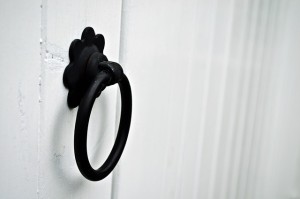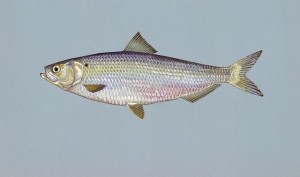to knock, to beat/pound, to be correct/in order [verb] [klopte, geklopt]
 “Kloppen” is a so-called homonym: a word that has more than one meaning. The Dutch language is (in)famous for its frequent use of homonyms, check out DWOTD “Aankomen“.
“Kloppen” is a so-called homonym: a word that has more than one meaning. The Dutch language is (in)famous for its frequent use of homonyms, check out DWOTD “Aankomen“.
Examples:
1. “Toen de postbode zag dat er geen bel was, klopte hij drie maal op de deur.”
(“When the postman saw that there was no doorbell, he knocked on the door three times.”)
2. “Het decolleté van de aantrekkelijke projectmanager deed het hart van de jonge programmeur sneller kloppen.”
(“The attractive project manager’s cleavage made the young programmer’s heart beat faster.”)
3. “Toen de politieagent zag dat het slot van de deur geforceerd was, wist hij dat er iets niet klopte.”
(“When the police officer saw that the doorlock had been forced open, he knew that something was wrong).”
Expressions:
1. “Dat klopt als een bus!”.
(“That’s absolutely correct/right!”. Literally: “That knocks like a bus!”)
Also: “Dat klopt als een zwerende vinger!”
(Literally: “That pounds like a gathering finger!”)
–> It is very common to just say: “dat klopt!”
2. “Bij iemand aankloppen”.
(“To ask someone for help or advice”. Literally: “To knock at somebody’s”, where “door” is implied).
Related words:
1. “Afkloppen”.
(Literally: “to knock
down”). Translates to “to knock on wood”: the superstitious habit to
renounce bad luck by knocking on a wooden object.
2. “Schouderklopje”.
(Literally: “little pat on the shoulder”). Translates to “pat on the back”.
Example:
– “Iedereen vindt het prettig om af en toe een schouderklopje te krijgen.”
(“Everybody likes getting a pat on the back now and then.”)
Extra:
Two well known children songs frequently use the word “kloppen”:
1. “Daar wordt aan de deur geklopt.”
(“There is knocking at the door.”)
Read the lyrics and listen to the song here.
2. “Hoor, wie klopt daar kinderen?”
(“Hear, who is knocking there children?”)
Read the lyrics and listen to the song here.
Both songs are “Sinterklaasliedjes”. “Sinterklaas” is a direct competitor of Santa Claus, whom the Dutch refer to as the “Kerstman”. (Both originate from the same catholic saint though: Sint Nicolaas (“Saint Nicolas”)).
More info on “Sinterklaas”:
– http://en.wikipedia.org/wiki/Sinterklaas (English)
– http://nl.wikipedia.org/wiki/Sinterklaas (Dutch)
 Translates to: fish.
Translates to: fish.
 “Kloppen” is a so-called homonym: a word that has more than one meaning. The Dutch language is (in)famous for its frequent use of homonyms, check out DWOTD “
“Kloppen” is a so-called homonym: a word that has more than one meaning. The Dutch language is (in)famous for its frequent use of homonyms, check out DWOTD “